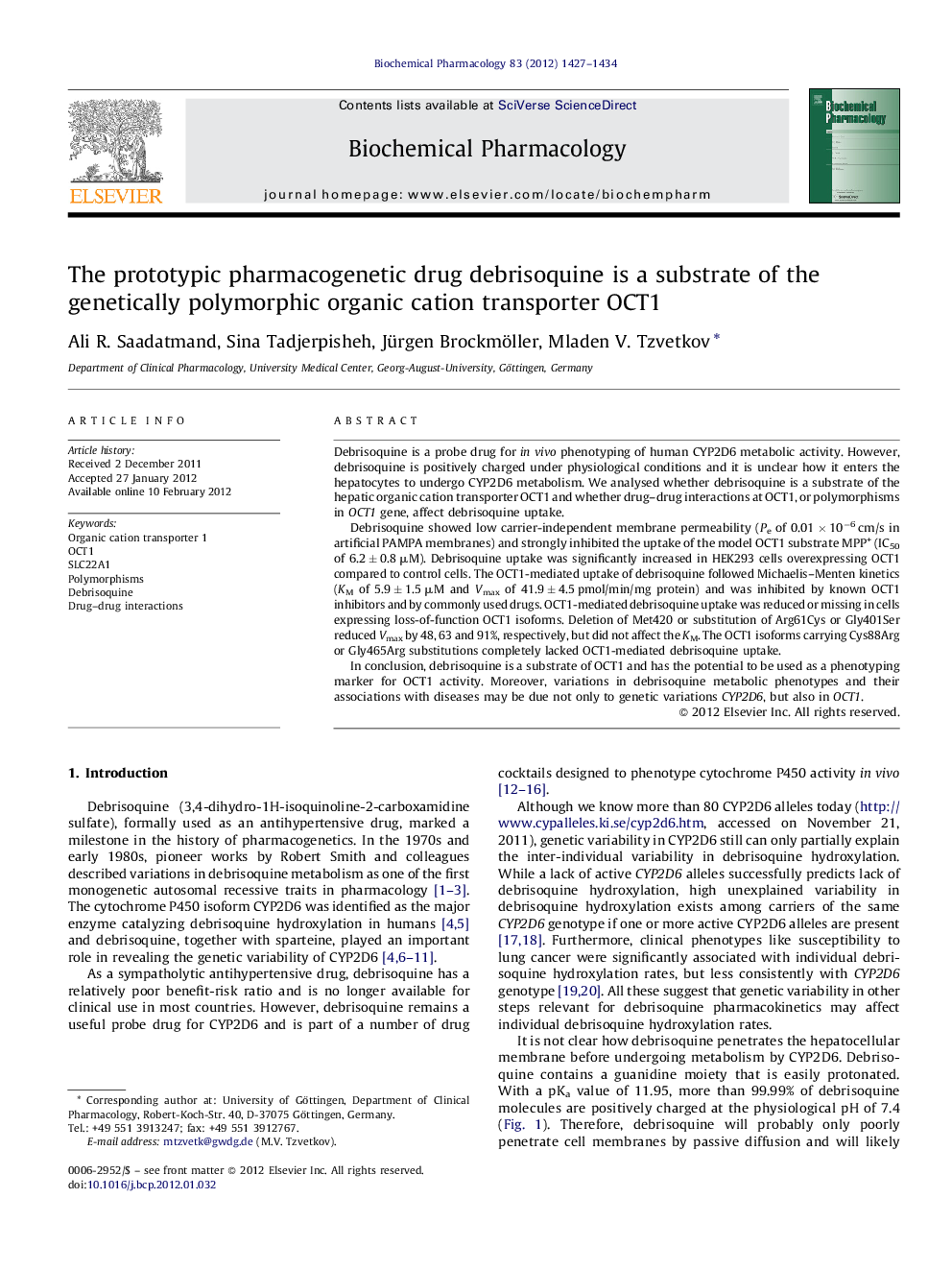| Article ID | Journal | Published Year | Pages | File Type |
|---|---|---|---|---|
| 5823938 | Biochemical Pharmacology | 2012 | 8 Pages |
Abstract
Debrisoquine is a probe drug for in vivo phenotyping of human CYP2D6 metabolic activity. However, debrisoquine is positively charged under physiological conditions and it is unclear how it enters the hepatocytes to undergo CYP2D6 metabolism. We analysed whether debrisoquine is a substrate of the hepatic organic cation transporter OCT1 and whether drug-drug interactions at OCT1, or polymorphisms in OCT1 gene, affect debrisoquine uptake.Debrisoquine showed low carrier-independent membrane permeability (Pe of 0.01 Ã 10â6 cm/s in artificial PAMPA membranes) and strongly inhibited the uptake of the model OCT1 substrate MPP+ (IC50 of 6.2 ± 0.8 μM). Debrisoquine uptake was significantly increased in HEK293 cells overexpressing OCT1 compared to control cells. The OCT1-mediated uptake of debrisoquine followed Michaelis-Menten kinetics (KM of 5.9 ± 1.5 μM and Vmax of 41.9 ± 4.5 pmol/min/mg protein) and was inhibited by known OCT1 inhibitors and by commonly used drugs. OCT1-mediated debrisoquine uptake was reduced or missing in cells expressing loss-of-function OCT1 isoforms. Deletion of Met420 or substitution of Arg61Cys or Gly401Ser reduced Vmax by 48, 63 and 91%, respectively, but did not affect the KM. The OCT1 isoforms carrying Cys88Arg or Gly465Arg substitutions completely lacked OCT1-mediated debrisoquine uptake.In conclusion, debrisoquine is a substrate of OCT1 and has the potential to be used as a phenotyping marker for OCT1 activity. Moreover, variations in debrisoquine metabolic phenotypes and their associations with diseases may be due not only to genetic variations CYP2D6, but also in OCT1.
Related Topics
Health Sciences
Pharmacology, Toxicology and Pharmaceutical Science
Pharmacology
Authors
Ali R. Saadatmand, Sina Tadjerpisheh, Jürgen Brockmöller, Mladen V. Tzvetkov,
